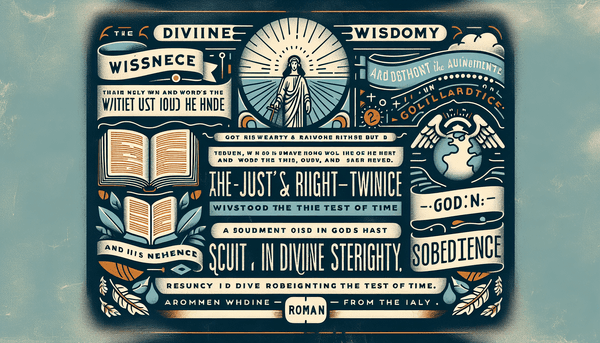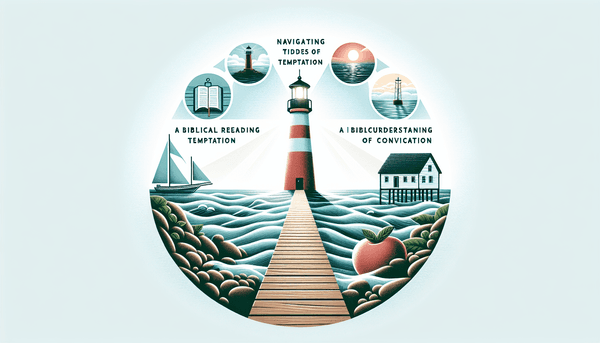Wisdom and Understanding
In a world brimming with complexity, the pursuit of wisdom becomes a beacon of light that can lead to a fulfilling life. Wisdom, as portrayed in the Bible, is more precious than rubies and yields far greater returns than material wealth. The difference between worldly and godly wisdom lies in their origins and purposes. Godly wisdom, sourced from above, is pure, peace-loving, and considerate, as described in James 3:17, guiding us towards actions that reflect divine love and understanding.
The quest for understanding begins with humility, a recognition of our limitations and the vastness of knowledge that lies beyond our grasp. We initiate our journey of learning through life experiences, the study of Scripture, and the pursuit of godly virtues. As we grow in understanding, we align closer to the heart of the wise, characterized by discernment, compassion, and a depth of insight that transcends mere intellect. Proverbs 4:7 asserts the supreme value of wisdom, urging us to gain understanding, for it is the principal thing.
The Perils of Trusting in Humans
While the Bible teaches us to love and support one another, it also cautions us against placing too much trust in human reliability. Scriptures such as Psalm 118:8 and Psalm 146:3 remind us that it is better to take refuge in the Lord than to trust in humans, who cannot save. This is not to say that we should isolate ourselves or view others with suspicion, but rather that we should exercise discernment and understand that human beings are fallible, and our ultimate trust should be placed in God.
Jeremiah 17:5-8 offers a stark contrast between those who trust in mankind and those who trust in the Lord. The former is likened to a shrub in the desert, unable to flourish, while the latter is compared to a tree planted by water, unafraid of heat or drought, always bearing fruit. Trusting in God provides a foundation of security and resilience, ensuring that even in the harshest conditions, our spiritual roots remain nourished and strong. For further reflection on spiritual strength, consider reading about the path of forgiveness and purity, as these elements are crucial in overcoming the challenges of sin and lust through scripture.
Conclusion
As we draw the threads of trust in God and the pursuit of wisdom together, we recognize their vital role in guiding us through the complexities of life. The Scriptures, rich with divine wisdom, offer us principles and precepts to not only guide our decisions but also to shape our character. Embracing the teachings of Proverbs 3:5-6 and the related themes discussed, such as the power of prayer and the significance of faith, encourages us to reflect on these truths and apply them to the tapestry of our daily lives. Trusting that God's wisdom will illuminate our path, we are led to a place of peace and purpose.
FAQ
Q: Can you give me an example of Proverbs 3:5-6?
A: An example of living out Proverbs 3:5-6 could be when facing a difficult decision, instead of relying solely on our own wisdom or understanding, we trust in the Lord and seek His guidance through prayer, and seeking counsel from godly individuals. By submitting our ways to Him, we acknowledge His sovereignty and trust that He will direct our paths according to His perfect will.
Q: What does the Bible say about trusting humans?
A: The Bible warns against putting too much trust in humans, as they are fallible and can let us down. Jeremiah 17:5-8 contrasts the peril of trusting in mankind with the blessings of trusting in the Lord, emphasizing the importance of placing our ultimate trust in God.
Q: What are some Bible verses about not trusting people?
A: The Bible cautions us with verses such as Psalm 118:8, which says it is better to take refuge in the Lord than to trust in humans, and Psalm 146:3, which advises not to put trust in princes or human beings who cannot save. These verses remind us of the limitations of human trust and the reliability of God.
Q: What is God's plan according to the Bible?
A: According to Jeremiah 29:11, God's plan for us is one that is intended to prosper us, not to harm us, and to give us hope and a future. This verse reassures us of God's benevolent intentions and encourages us to trust in His divine plan for our lives.






